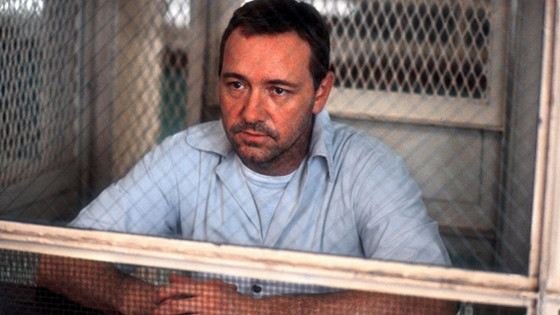
It’s a crying shame when a film has all the makings of a masterpiece, only to fall apart in its final moments. But what of the opposite? What of those films that appear backed to the corner of the ring? What of those films that, at the final desperate breath, throw a surprise jab to the left and a hard crack to the right, leaving one floored? This list accounts for films of that ilk. Of course, the nature of this list warrants spoilers, so reader discretion is advised.
10. Red State
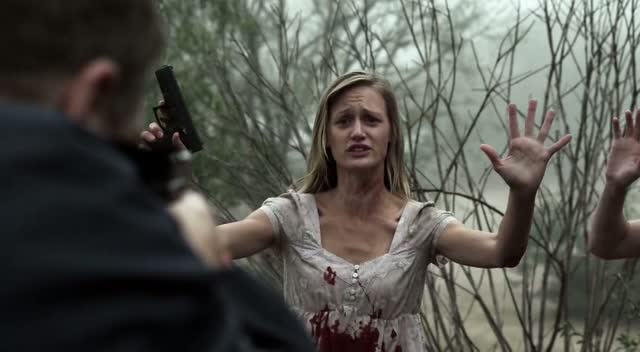
When you hear the name Kevin Smith, you might be quick to remember him for his low-budget indie comedies. Before 2011, it would have been a surprise to anyone in imagining Kevin Smith as someone who excels in the horror genre. But such is the case with ‘Red State’; a film that outlines the injurious nature of extremist ideologies.
The plot kicks off with a group of teenage boys who have been offered sex from a 38 year old woman on a retro-version of Tinder. The boys come strapped with a cardboard cut-out criteria of everything we have come to expect from stereotypical horror films; they drink booze, listen to metal, curse, and talk about sex, sex and more sex.
Giddy with hormones, the three boys arrive at the woman’s trailer, at which point they are encouraged to drink beer, only to find their drinks have been spiked. Upon regaining consciousness, they find themselves imprisoned in a Church compound, where they have been condemned to fire and brimstone for their sins.
What follows is something akin to Eli Roth’s ‘Hostel’, and Kevin Smith seems to delight in cheap bouts of gorno as the preacher (the late Michael Parks) sermonises the Gospel Truth. The film takes an odd turn when ATF Agent Joseph Keenan (played by John Goodman) is charged with the task of spearheading a military raid on the compound.
The movie becomes something of a cheap shoot ‘em up at this point, with each side taking their necessary hits. But then, much to the delight of the Christians, trumpets sound, as if from the sky. The ATF Agents stand there in stunned disbelief, as the preacher begins to wax poetic about ‘The Day of Judgement’ and how it is finally upon them.
It’s a chilling scene, and validates all of the horrible things the Christians have done up to this point. However, at the film’s climax, during a debriefing session with two of his superiors, Joseph Keenan reveals that the supposed ‘rapture’ was merely a neighbours prank involving a large set of speakers and an iPod.
‘Red State’ ends on this abrupt note, and acts as a critical attack on all those who submit blindly to higher powers.
Hallelujah!
9. Planet of The Apes
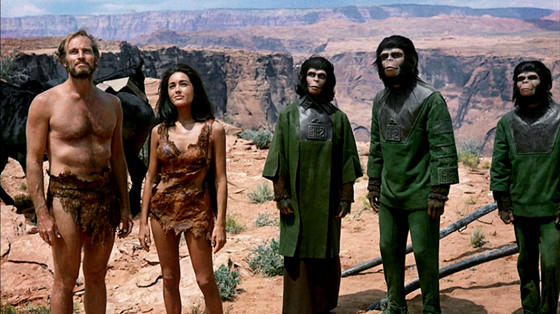
Franklin J. Schaffner’s ‘Planet of the Apes’ was released in 1968, and was hailed as being one of the strongest science fiction films of its time. The film plays out like an extended episode of ‘The Twilight Zone’; which should be of little surprise when one notes that Rod Serling had a heavy hand in penning the screenplay.
It all begins when a group of astronauts crash land on an uncharted planet, only to stumble across a civilisation of talking apes. Unfortunately, even for its time period, the character dialogue is unforgivingly on the nose, and the humour falls well short of the mark. It’s cheap, it’s lame, and it’s kind of hokey.
In addition to this, it’s difficult not to look past some of the idiotic things the astronauts do upon crash landing. One might recall a moment where the protagonist (played by Charlton Heston) decides to spark up a cigar in the middle of the desert after learning that they are low on water rations. Clearly the dude doesn’t understand the concept of dehydration.
Still, it’s easy to forgive the film’s shortcomings when it’s revealed that the ‘Planet of the Apes’ is not an extra-terrestrial planet, but rather…(drum roll) planet Earth itself, suffering in the wake of a nuclear apocalypse. It’s impossible to forget the moment Charles Heston comes across the Statue of Liberty on a desolate stretch of beach, half devoured by time.
8. The Invitation
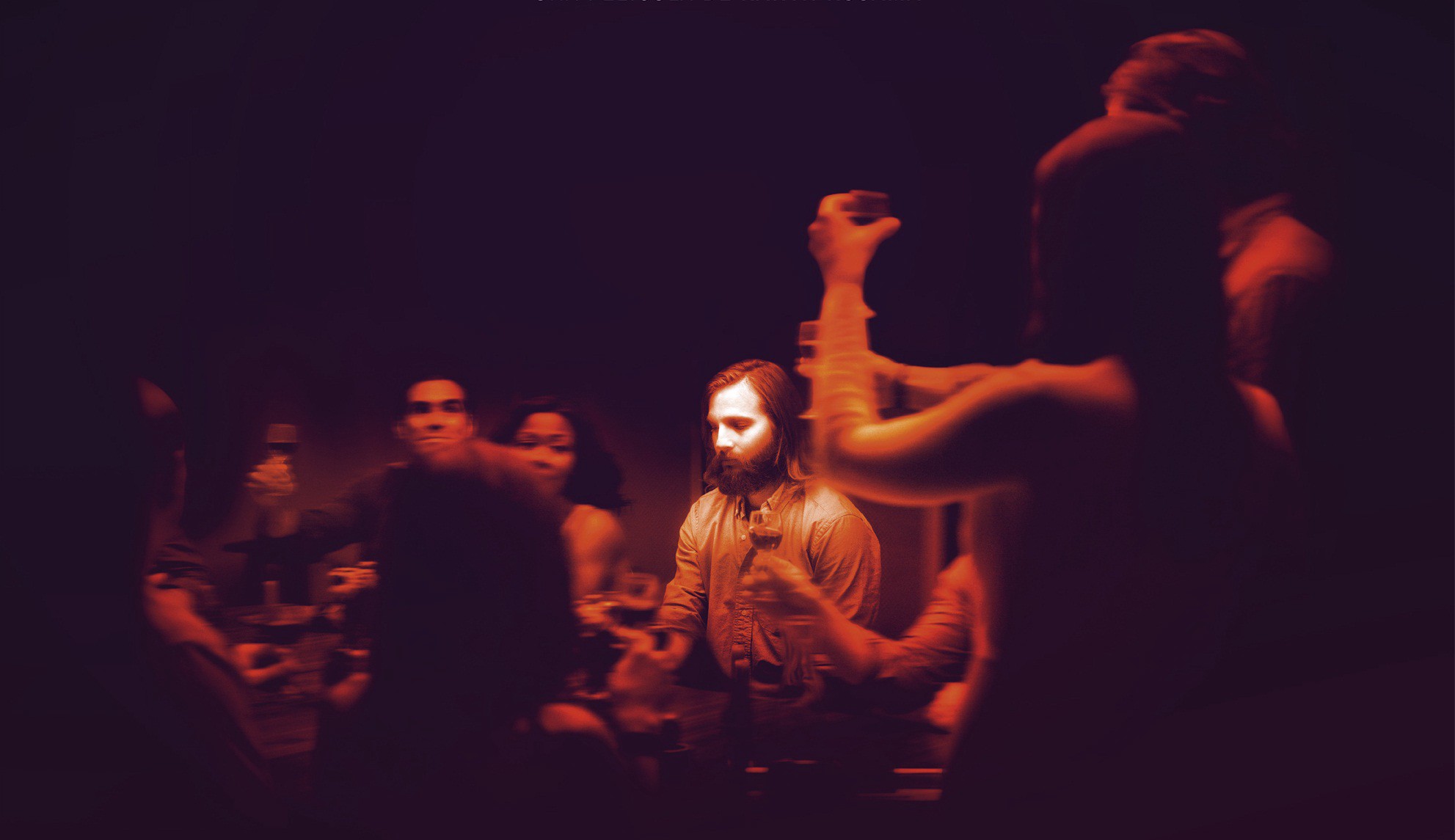
Unfortunately, Karyn Kusama’s ‘The Invitation’ didn’t quite receive the recognition it deserved. Set in the Hollywood Hills, the film follows the story of Will (Logan Marshall Green) who has been invited to a dinner party by his ex-wife, Eden (Tammy Blanchard). Sounds harmless enough…Right? Wrong!
As the film progresses, the viewer is forced into the claustrophobic realm of Will, who, to be fair seems a little on the paranoid side. He feels that the guests at the household are in on something sinister, spouting off conspiracies to those that will listen that his ex-wife is part of some Manson-esque death cult.
The viewer is asked to question the mental stability of the central character, as well as their own viewing experience. This takes a lot of patience however, because ‘The Invitation’ is slow on the boil…Very slow. That is to say, nothing much happens until the final 20 minutes of the film, when it becomes clear that Will was right all along.
However, what makes this film jump to a higher calibre of horror, is when Will realises in the final seconds of the film that the cult like events are not restricted to the house, but are taking place across the entire neighbourhood; the Hollywood Hills erupting with screams, gun shots, explosions and the oppressive thump of police helicopters.
It’s an apocalyptic frame to end on, and has incredible staying power.
7. The Wife
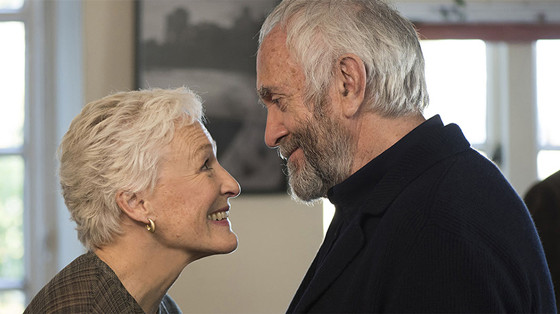
In ‘The Wife’, Joseph (played by Jonathan Price) finds himself the recipient of the Nobel Prize in Literature. As he jumps up and down on his bed like an excited child, his wife, Joan (played by Glenn Close) shares in his joy. As the supposedly happy couple flash grins at the awards ceremony in Stockholm, it becomes apparent that their relationship is in shambles.
At the film’s climax, through flashback sequences, the audience comes to understand that Joan has been ghost-writing her husband’s entire biography, feeling that gender prejudice will never allow her the recognition she deserves as a writer. Just like any great twist, the viewer is forced to rewind the entire movie, and watch it through a fresh pair of eyes.
At doing this, Glenn Close’s performance takes on a new kind of power; the subtle nuances that flash across Joan’s face when her husband is being doted upon at the awards ceremony, and the reserved smiles that can be seen as her husband soaks in the ovations can be appreciated from an entirely different angle of analysis.
In the final minutes of the narrative, in a sudden turn of events, Joan’s husband dies of heart failure, freeing Joan to expose the secret that’s burdened her so long. However, on the plane ride home, when pressed by a journalist (played by Christian Slater) to tell the truth, she threatens him with libel if he dares to write anything untoward about her husband.
In this moment, two questions are posed: Was this an act of martyrdom to save her husband from the scandal, or was it an act of defeat in a world ruled by men? It’s a brilliantly ambiguous tone to end on, and one that is certainly a reflection of the gender politics that are now, more than ever, under the magnifying glass.
6. Angel Heart
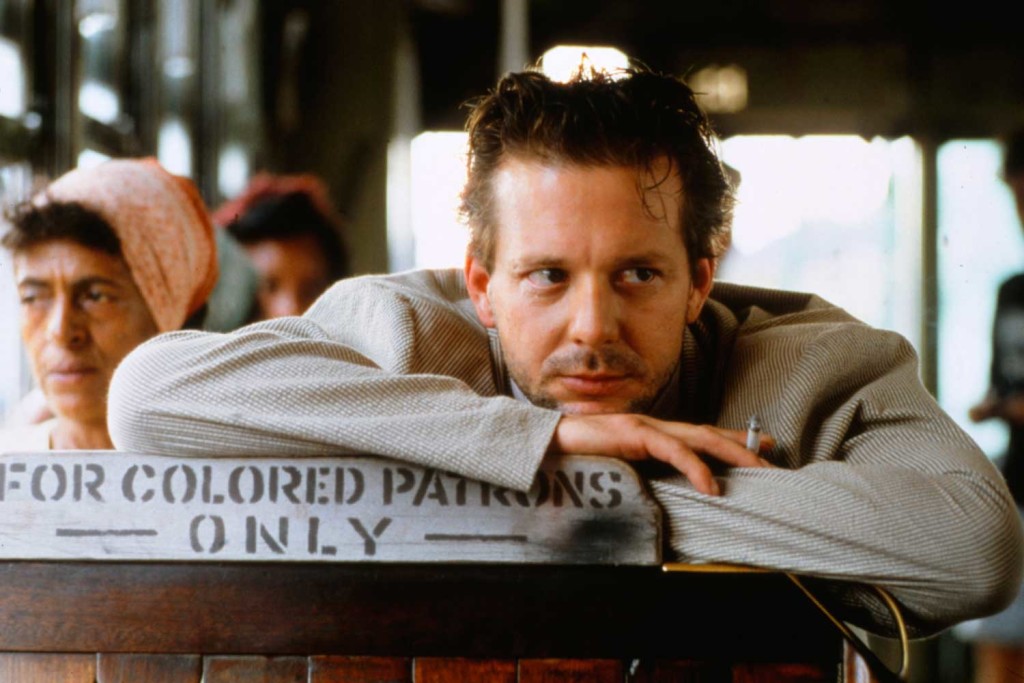
‘Angel Heart’ was released in 1987 to divisive reviews. Harry Angel (played by Mickey Rourke) is a private investigator, asked to track down one Johnny Favourite by his client, Louis Cyphre (played by Robert Deniro). What unfolds is a hard-boiled Detective mystery where the answers elude the protagonist with the evasive rascal of a golden snitch.
Throughout the narrative, Harry Angel finds himself thrown into a labyrinthine world of charlatan preachers, black magic, and falsified medical reports. Still, even with the powerhouse performances from Deniro and Rourke, it’s difficult to look past the trite suspense devices used; lightning strikes and heart beats spring immediately to mind.
Nearing the film’s climax, the viewer learns that Harry Angel has been sent on a wild goose chase, and that Johnny Favourite is in fact Harry Angel himself; they are one and the same person. Flashback memories indicate that Johnny Favourite sold his soul to the Devil, and reneged on the bargain by body swapping with Harry Angel.
We also find out that Louis Cyphre (Robert Deniro) is in fact the Devil, and that Harry Angel will be sent to Hell. The final sequence portrays Harry descending by rickety elevator to the punishment that awaits him. It’s an exquisitely symbolic climax bristling with religious undertones and adds a supernatural flavour to what could have been a simple crime story.